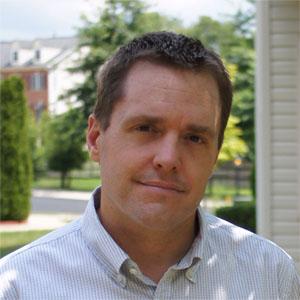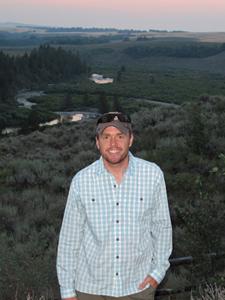Meet EPA Scientist Michael Nye, Ph.D.

Research at the Intersection of People and the Environment
Michael Nye, Ph.D., is a social scientist who studies natural risk, socio-demographic change and sustainable behavior. He has worked in a variety of academic, industrial, and government roles in his career. Prior to joining EPA, he worked for the UK Environment Agency in flood risk management and emergency preparedness. He is a fanatical fly fisherman and enjoys spending time in the outdoors with his family.
How does your science matter?
I work on the human dimensions of EPA’s mission. My work is aimed at helping EPA better understand states and communities and how we can work together to solve the environmental problems that really matter to them.<
We are trying to understand how communities can be more sustainable. We want to know how factors such as demographics, environmental stressors, and geography can affect decisions and shape a community’s approach to sustainability. We’re also looking across the whole United States for meaningful data patterns that can help EPA prioritize how to help communities that have different interests in sustainability.
What do you like most about your research?
I like that my research looks at the intersection of people, behavior, and the environment. I also love crunching numbers and looking at statistics to find meaningful patterns in data, so I enjoy getting involved in work that allows me to do that.
My work is aimed at helping EPA better understand states and communities and how we can work together to solve the environmental problems that really matter to them.
Can you give an example of your current work?
Sure. I’m working with the U.S. Army to support the Net Zero initiative, a collaborative effort to reduce water demand by working with people living on military installations. The project is taking place in Fort Riley, Kansas.
We want to give people frequent feedback on how much water they’re using, which will help them tie water use to specific events, like washing a car or forgetting to turn off the sprinkler. Seeing the gallons of water used is a powerful tool that will help people make better decisions about water use.
The Army wants to conserve resources for the installations, but they’re also worried about soldiers out in the field who are dependent on these supplies. Soldiers are putting their lives at risk every day in the field driving water convoys to supply our troops with water. If our research can help the Army reduce the number of convoys it needs by looking at the drivers of water waste and demand, we’re not just helping the environment. We’re potentially saving lives.
It’s been an honor and a great opportunity to work alongside soldiers and their families to promote conservation efforts that benefit both EPA and the Army’s mission.

When did you first know you wanted to be a scientist?
I was always interested in pursuing science as a career. I like spending time in the outdoors, especially on rivers, fishing. For a long time I wanted to be an aquatic biologist, but I changed my mind when I was an undergraduate student.
If you could have dinner with any scientist, past or present, who would you choose and what would you like to ask them?
I would choose John Wesley Powell, an explorer of the American west who mapped the Grand Canyon. He was a naturalist and a geographer, but he was also an early anthropologist. He shared really similar interests to my own in terms of how people relate to a place and a landscape, particularly the rivers of the American west.
Tell us about your background.
I have bachelors’ degrees in Political Science and Sociology from Colorado State University. I received a master’s degree in Sociology from Trinity College in Dublin, Ireland. For my PhD, I studied Human Geography at the University of Cambridge in the United Kingdom. My PhD research was on the development of carbon trading regimes and the behavior of regulated firms in carbon markets.
What would you be doing if you weren't a scientist?
I’d probably be a trout fishing guide or a ski bum living somewhere in Idaho or Montana.
Any advice for students considering a career in science?
For a student interested in the social sciences who wants to operate outside of academia, you need to be proactive. That means challenging conventional scientific understanding and framing of things like risk, the drivers of decision-making, what it means to have meaningful stakeholder engagement, and what it means to have public benefit. You need to be ready to defend the value of those evaluations with scientific evidence. I think too often social scientists bring criticism on themselves by not measuring the outcomes of what they do.
